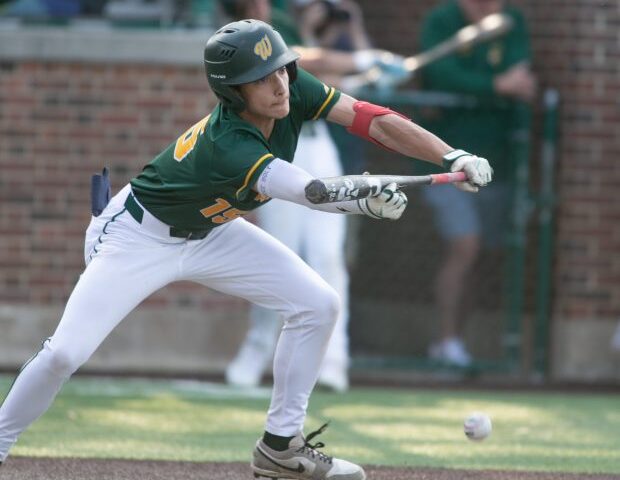The key witness testified in a gravelly voice, through a shaky Zoom connection, with long pauses for violent coughing fits. But she got a key message across: The last time she saw Pamela Powers, Powers was with Gerald Reed and she seemed frightened.
“She looked terrified, scared,” Mia Grover said Monday, describing Powers coming up the stairs of an Englewood apartment building with Reed close behind her. “Her eyes, they were so big, like they could pop out of her head.”
Grover was prosecutors’ first witness in the long-awaited trial of Gerald Reed, whose complicated legal saga has involved a murder conviction, allegations that he was abused by police, a reversal of that conviction, a reversal of the reversal, a commutation, and now a second murder trial — for which he cannot go to prison if convicted.
The trial is expected to last for most of the week. Reed has chosen to have Judge Steven Watkins, not a jury, make a finding of guilty or not guilty.
Prosecutors in their opening statement laid out their claims that in October 1990 Reed and co-defendant David Turner “executed” both Powers and her friend Willie Williams.
Williams’ body was found in Powers’ ransacked apartment, while Powers was found shot twice in the head under a viaduct near Kennedy-King College. The bullets recovered from both victims were fired from a gun that Turner had handled a couple of weeks before the shooting, special prosecutor Robert Milan said.
Reed’s attorney Elliot Zinger, in opening statements, called the prosecution’s case heavy on speculation but thin on facts, noting that no witnesses saw the actual shooting and there was no physical evidence — now or in 1990 — tying Reed or Turner to the killings.
While Milan noted that prosecutors are not required to prove which man fired the gun, only to show the two men acted in concert, Zinger said that is a sign of the case’s overall weakness.
“If they don’t know who did what, anyone could have done it,” he said.
Grover, who testified from out of state via Zoom due to health problems, testified that after seeing Powers with Reed, she listened at a closed apartment door and heard Turner say “we’re not gonna have this (expletive), bitch,” and then later overheard Reed say he could get a car.
“David said he didn’t need a car, he could drop this bitch behind Kennedy-King,” Grover testified.
Turner later asked Grover if she knew where Powers was, according to Grover’s testimony. When Grover answered she had last seen Powers with Reed, Turner “asked me if I was ready to die,” she said Monday.
Reed’s attorneys in opening statements called Grover’s testimony “highly, highly suspicious.”
Her claims, including about having Turner talking about Kennedy-King, are “very convenient” against the backdrop of what is known about police coercion at the time, defense attorney Elliot Zinger said.
“It’s the kind of testimony that happens to drop into trials when there’s no evidence,” Zinger said.
On cross-examination, Zinger hinted heavily that Grover was using drugs at the time, and was under investigation by the Department of Children and Family Services, both of which Grover denied.
He also tried to indicate that Williams was a drug dealer, and pressed Grover repeatedly about why she didn’t call police when she overheard Turner and Reed acting aggressively that night.
mcrepeau@chicagotribune.com




